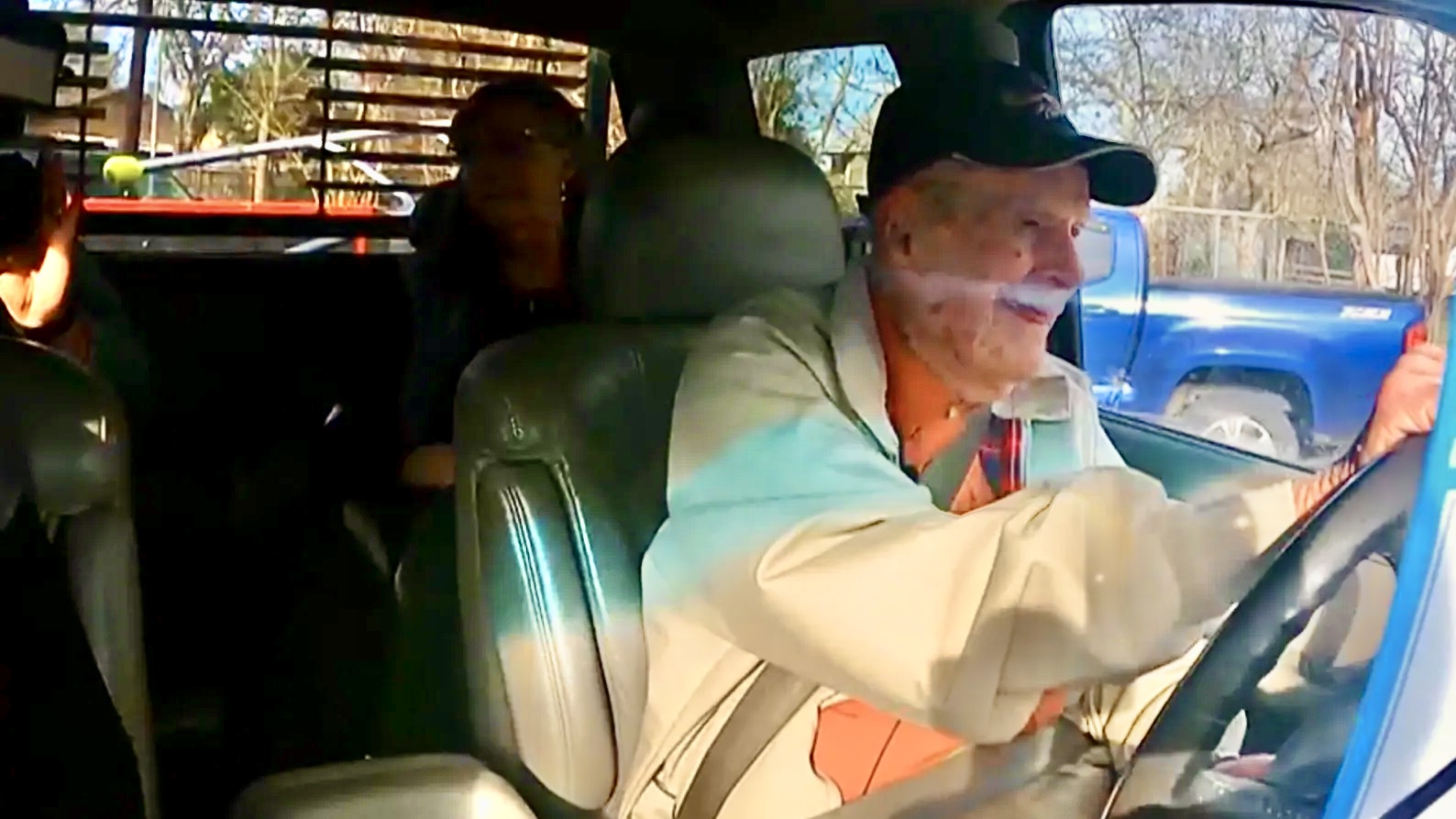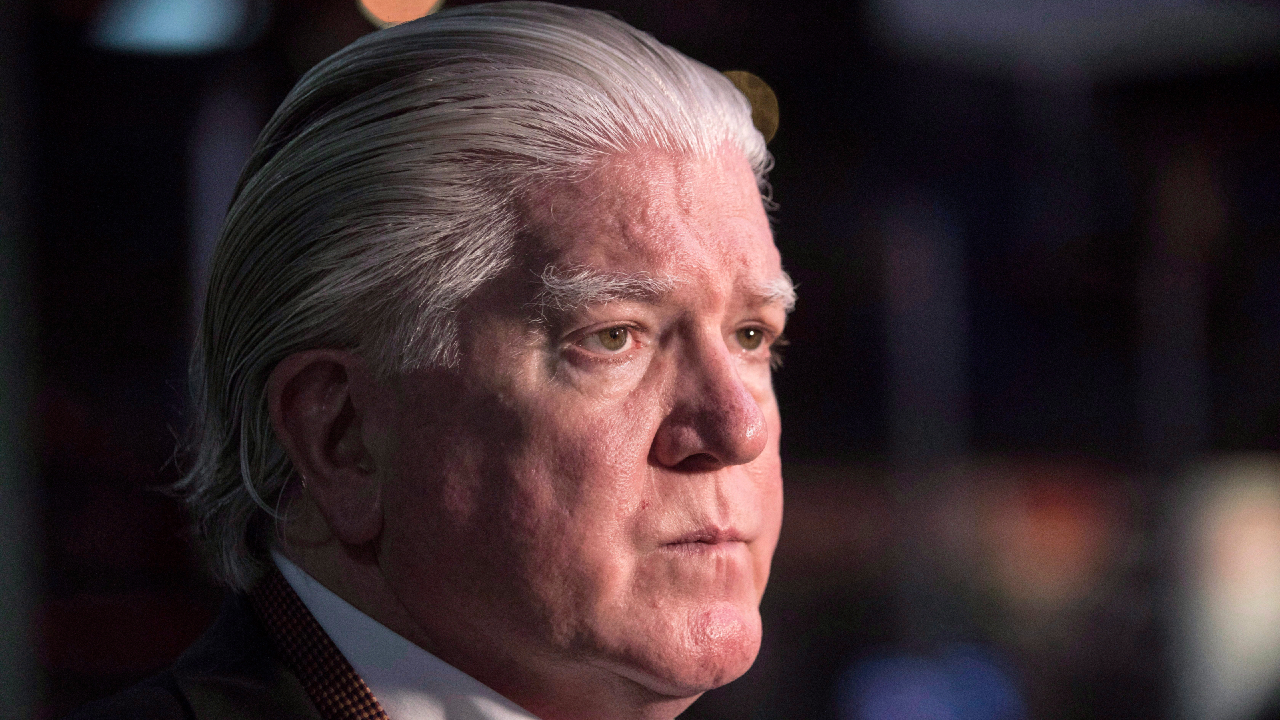Trump set to be inaugurated, kicking off 100-day rush
President-elect Trump is set to be sworn in at the Capitol on Monday, solidifying his stunning return to the White House and kicking off what is expected to be a busy 100-day rush focused on a handful of hot-button issues. The swearing-in — which was moved to inside the Capitol rotunda because of freezing-cold temperatures...

President-elect Trump is set to be sworn in at the Capitol on Monday, solidifying his stunning return to the White House and kicking off what is expected to be a busy 100-day rush focused on a handful of hot-button issues.
The swearing-in — which was moved to inside the Capitol rotunda because of freezing-cold temperatures — is scheduled to take place just before noon for Trump and Vice President-elect Vance, after which Trump will deliver remarks.
Once officially installed as the 47th president, Trump is expected to hit the ground running, issuing a series of executive actions focused on the border, immigration, energy and the federal workforce, and addressing the looming ban of the popular app TikTok.
Later on Monday, the Senate is slated to move on a number of Trump’s cabinet nominees, with some set to face confirmation votes in committee, and at least one expected to be confirmed by the entire upper chamber.
Also this week, both chambers are expected to finish consideration of the Laken Riley Act, and the House is set to move on an abortion bill.
Inauguration
Trump and Vance are set to be sworn into office just before noon on Monday, officially beginning the second Trump administration — and kicking off what is expected to be a swift series of policy moves.
Trump is planning to sign a handful of executive actions right after his swearing-in on Monday, including declaring an emergency at the border, classifying drug cartels and foreign terrorist organizations, and moving to reinstate the Remain in Mexico policy, sources told The Hill after Stephen Miller, the incoming incoming White House deputy chief of staff for policy, briefed GOP lawmakers. He is also expected to touch on matters involving the federal workforce and energy.
Aside from those executive actions, the president-elect has also said he will move quickly to issue an executive order to try and stave off the U.S. ban on TikTok, which temporarily went into effect over the weekend.
The popular app went dark late Saturday night in anticipation of a ban taking place at the end of Sunday, after Congress passed and President Biden signed a bill that required TikTok’s China-based parent company ByteDance to divest from the platform or face a ban in the U.S.
Sunday morning, however, Trump wrote on Truth Social that he would issue an executive order on Monday to extend the period of time before the ban takes place, which TikTok said was enough information needed to restore service in the U.S.
“We thank President Trump for providing the necessary clarity and assurance to our service providers that they will face no penalties providing TikTok to over 170 million Americans and allowing over 7 million small businesses to thrive,” TikTok wrote in a statement.
There are, however, some questions about that logic. Sens. Tom Cotton (R-Ark.), the chairman of the Senate Intelligence Committee, and Pete Ricketts (R-Neb.) wrote in a statement before the Trump and TikTok statements: “Now that the law has taken effect, there’s no legal basis for any kind of ‘extension’ of its effective date,” arguing that ByteDance would have to sell the platform to return online.
After the statements from Trump and TikTok, Cotton wrote on X: “Any company that hosts, distributes, services, or otherwise facilitates communist-controlled TikTok could face hundreds of billions of dollars of ruinous liability under the law, not just from DOJ, but also under securities law, shareholder lawsuits, and state AGs. Think about it.”
Senate to confirm first Cabinet nominees
Trump’s first days back at the White House will be accompanied by a flurry of confirmation hearings and votes in the Senate, as the GOP-controlled upper chamber looks to quickly solidify the incoming president’s Cabinet.
Those moves will take place as soon as Monday, the same day as the inauguration: The Senate Foreign Relations Committee is scheduled to advance Sen. Marco Rubio’s (R-Fla.) nomination to be secretary of State at 4:30 p.m., which could come before the full Senate for a vote later that day. Rubio has been seen as the Cabinet nominee with the best chance of being confirmed first.
“He visited my office before the hearing. He did very well at the hearing, and I think we are likely to act on day one, and he'll get a strong bipartisan vote,” Sen. Tim Kaine (D-Va.) said of Rubio on CBS’s “Face the Nation” on Sunday.
At 5:30 p.m. on Monday, the Senate Committee on Homeland Security and Governmental Affairs Committee is slated to vote on South Dakota Gov. Kristi Noem’s (R) nomination to be Homeland Security secretary and Russell Voight’s nomination to be director of the Office of Management and Budget.
Additionally, committees of jurisdiction are expected to vote on advancing Pete Hegseth’s nomination to be secretary of Defense, and John Ratcliffe’s nomination to be CIA director on Monday. Ratcliffe’s nomination could make it to the full Senate later that day.
Later in the week, committees are scheduled to vote on the nominations of Sean Duffy for Transportation secretary, former Rep. Doug Collins (R-Ga.) to be secretary of Veterans Affairs, and former Rep. Lee Zeldin (R-N.Y.) to be administrator of the Environmental Protection Agency (EPA). A handful of other nominees will have their confirmation hearings, including Rep. Elise Stefanik (R-N.Y.) to be U.S. ambassador to the United Nations.
Congress to wrap up consideration of Laken Riley Act
Congress this week is set to wrap up consideration of the Laken Riley Act, likely handing Trump an early legislative win in his first week in office.
The Senate is expected to hold a final vote on the legislation early this week, after the measure advanced on Friday. The bill, named after the slain Georgia student, would require the detention of migrants arrested for theft.
The measure is expected to pass the Senate with bipartisan support following a number of procedural votes that garnered support from lawmakers on both sides of the aisle. On Friday, senators voted 61-35 to end debate on the legislation, a vote that included support from 10 Democrats. One other Democratic supporter — Sen. John Fetterman (D-Pa.), a co-sponsor of the legislation — missed that vote.
If the Senate does approve the legislation, it would have to stop back to the House for final approval before heading to Trump’s desk because the upper chamber amended the legislation. Last week, senators adopted an amendment proposed by Sen. John Cornyn (R-Texas) that added the assault of a law enforcement officer provision.
The House approved the initial version of the bill in a bipartisan 264-159 vote earlier this month, with 48 Democrats joining all Republicans in support.
The bill’s passage in both chambers this week would mark a massive victory for GOP lawmakers and Trump, giving them an early legislative win on an issue — the border — that was a top priority on the campaign trail, and is expected to be top of mind over the next two years.
Passage of the legislation is also poised to divide Democrats, an added bonus for the GOP, which has tried to hammer home that they have the upper hand on the hot-button issue.
House GOP tees up vote on abortion bill
House Republicans are set to turn their attention to abortion this week, staging a vote on the Born-Alive Abortion Survivors Protection Act, which mandates that an infant born alive after an attempted abortion receives the same degree of care that any other child born prematurely would receive.
The bill is a familiar one for the House GOP: The conference approved the legislation in January 2023 — the beginning days of the 118th Congress — in a largely party-line 220-210-1 vote. Rep. Henry Cuellar (D-Texas) was the only Democrat to vote “yes,” while Rep. Vicente Gonzalez (D-Texas) voted “present.”
An infant being born after an attempted abortion is an extremely rare occurrence. In Minnesota, one of the few states that tracks such cases, three cases of an infant being born after an attempted abortion were reported in 2017, according to a report from the state’s Department of Health. The infants did not survive in all three cases.
Speaker Mike Johnson (R-La.) pitched the legislation as one that “comports with common sense” during a recent appearance on Salem News Channel.
“Wherever anyone is on the issue of abortion, for goodness sakes, if a child is born alive they deserve every protection and medical treatment than any other child, even if they were the victim of a failed abortion attempt,” Johnson said. “And the idea that legislators would not regard the sanctity of that human life as any other is just unconscionable to us. So this should be low-hanging fruit, as we say in the legislative arena, it should be very simple.”
In addition to the border, women’s reproductive rights played a key role on the campaign trail, with Democrats leaning into the issue after the 2022 Supreme Court decision that overturned Roe v. Wade.
Brett Samuels contributed.
What's Your Reaction?
































.jpg?width=1920&height=1920&fit=bounds&quality=80&format=jpg&auto=webp#)


















































